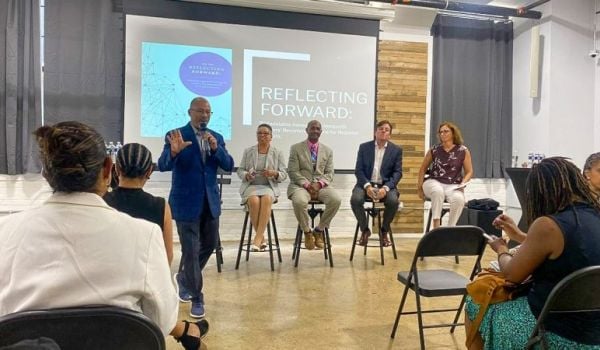Next City is hosting a live blog of the 2013 Reclaiming Vacant Properties conference, now ongoing in Philadelphia.
One issue that’s come up again and again at the Reclaiming Vacant Properties conference — and which may make for a good panel topic next year — is that so much data on properties is still buried in paper filing systems. Some counties have converted their information into digital, machine-readable records, but most have not. The decision is usually left up to individual county governments.
That’s a mistake. More consistent availability of machine-readable data on properties could make life a bit easier for everyone working to reduce vacancy, blight and delinquency, not to mention improve the functioning of real estate markets throughout the country.
Given what we know about how the unemployment rate tends to closely track housing market conditions, and how the tightness of the country’s credit markets is tied to uncertainty in the real estate market, there would seem to be a strong federal and state interest in improving the quality and availability of public information about local housing markets.
There’s also a county interest in doing these upgrades, since the lack of standardized electronic county property records is one factor that drives the popularity of MERS — the private Mortgage Electronic Registration Systems, which banks have used to bypass local property registration systems and skirt county mortgage registration fees.
One way to improve the situation would be for the federal government to pay for the digitization of county property records, and develop a national public MERS containing all the information counties have about their real estate. These upgrades should be prioritized at a higher level, and shouldn’t be left up to short-sighted municipal-level debates about whether they’re worth paying for out of local property taxes. There’s a much broader economic significance to this issue than the return on investment for local taxpayers.

Jonathan Geeting is a freelance writer based in Philadelphia, where he writes about land use and public space politics. His work appears at Next City, This Old City and Keystone Politics.
















